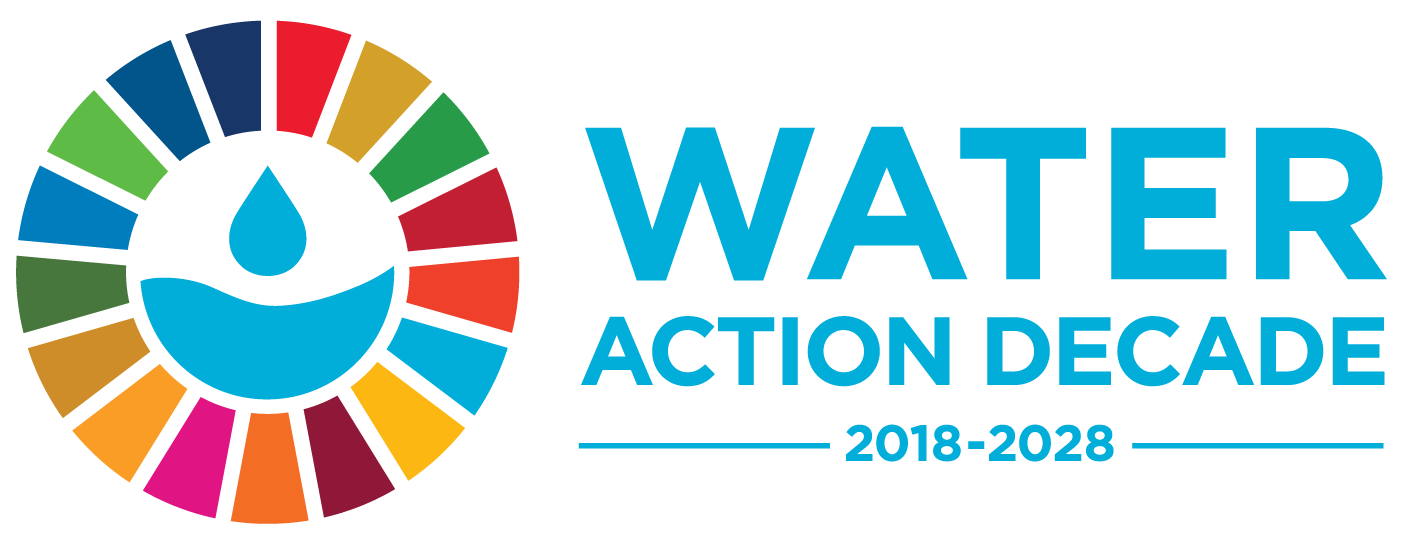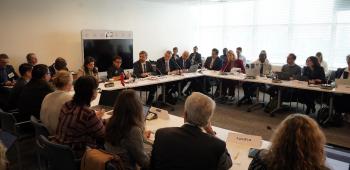Water and Sanitation
Description
Water and sanitation are at the core of sustainable development, and the range of services they provide underpin poverty reduction, economic growth and environmental sustainability. However, in recent decades overexploitation, pollution, and climate change have led to severe water stress in locales across the world.
Today, 2.2 billion people lack access to safely managed drinking water, and more than 4.2 billion people lack safely managed sanitation. Climate change is exacerbating the situation, with increasing disasters such as floods and droughts. 80 per cent of wastewater in the world flows back into the ecosystem without being treated or reused, and 70 per cent of the world’s natural wetland extent has been lost, including a significant loss of freshwater species.
The COVID-19 pandemic poses an additional impediment, impairing access for billions of people to safely managed drinking water, sanitation and hygiene services – services desperately needed to prevent the virus from spreading.
Now more than ever the world needs to transform the way it manages its water resources and delivers water and sanitation services for billions of people. Urgent action is needed to overcome this global crisis, as it is affecting all countries around the world, socially, economically and environmentally.
Sustainable Development Goal 6 (SDG 6) on water and sanitation, adopted by United Nations Member States at the 2015 UN Summit as part of the 2030 Agenda for Sustainable Development, provides the blueprint for ensuring availability and sustainable management of water and sanitation for all.
As a direct response to the Decade of Action and Delivery for Sustainable Development called for by Heads of State and Government at the SDG Summit in 2019, the UN system launched the SDG 6 Global Acceleration Framework in July 2020, to step up progress towards the Sustainable Development Goals and put the world on track to realize their targets by 2030. We call upon all stakeholders to galvanize actions around the framework in order to accelerate achievement of the water-related goals and targets and overcome the global crisis.
Background
While SDG 6 is the most recent iteration of the United Nations’ aim to address water-related issues, the topic has long been a concern at the United Nations.
In 1977 the Mar del Plata conference in Argentina created an Action Plan on “Community Water Supply”, declaring that all peoples have the right to access to drinking water in quantities and quality equal to their basic needs. The importance of water was further raised by the International Drinking Water Supply and Sanitation Decade from 1981 to 1990 and in 1992 at the UN Conference on Environment and Development in Rio de Janeiro (Agenda 21, Chapter 18), as well as at the International Conference on Water and the Environment (ICWE) in Dublin.
In 1993 the World Water Day was designated on 22 March by the UN General Assembly, and in 2013 World Toilet Day on 19 November.
In 2000 the Millennium Development Declaration called for the world to halve by 2015 the proportion of people without access to safe drinking water as well as the proportion of people who do not have access to basic sanitation and in 2003 the International Year of Freshwater was declared by the General Assembly, followed by the “Water for Life" Decade from 2005 to 2015.
In order to coordinate the efforts of UN entities and international organizations working on water and sanitation issues, the Chief Executives Board (CEB) of the United Nations established in 2003 UN-Water — a UN inter-agency coordination mechanism for all freshwater and sanitation related issues.
In 2008 the International Year of Sanitation was declared and on 28 July 2010 the human right to water and sanitation was explicitly recognized by the United Nations General Assembly through Resolution 64/292.
In December 2016 the United Nations General Assembly unanimously adopted the resolution “International Decade for Action – Water for Sustainable Development” (2018–2028) in support of the achievement of SDG 6 and other water-related targets, and on 21 December 2020, the resolution on the “United Nations Conference on the Midterm Comprehensive Review of the Implementation of the Objectives of the International Decade for Action, “Water for Sustainable Development”, 2018–2028”, the first UN Conference on water since 1977. Water is also at the heart of milestone agreements such as the Sendai Framework for Disaster Risk Reduction and the 2015 Paris Agreement.
Ensuring availability and sustainable management of water and sanitation for all has therefore been for a long time a topic at the United Nations and the priority is now turning the new vision of water related SDGs of the 2030 Agenda into reality, through national leadership and global partnership.
For more information and related documents, please visit this link
Pagination
| Title | Category | Date Sort ascending |
|---|---|---|
| Ireland | Member States | 24-Mar-2023 |
| Burundi | Member States | 24-Mar-2023 |
| Kiribati | Member States | 24-Mar-2023 |
| United Nations Framework Convention on Climate Change (UNFCCC) | UN System and IGOs | 24-Mar-2023 |
| Holy See | Member States | 24-Mar-2023 |
| International, Secretariat for Water | Stakeholders | 24-Mar-2023 |
| Myanmar | Member States | 24-Mar-2023 |
| Sri Lanka | Member States | 24-Mar-2023 |
| Sierra Leone | Member States | 24-Mar-2023 |
| Zambia | Member States | 24-Mar-2023 |
| Finland | Member States | 24-Mar-2023 |
| Austria | Member States | 24-Mar-2023 |
| Slovakia | Member States | 24-Mar-2023 |
| Argentina | Member States | 24-Mar-2023 |
| Oman | Member States | 24-Mar-2023 |
Pagination
This is a compilation of SDG 6 references in statements delivered at the General Debate of the 75th Session of the United Nations General Assembly. The information reflected on this website has been taken directly from the official statements received from Member States and does not imply the expression of any opinion whatsoever on the part of the Secretariat of the United Nations. For those statements not available in English, an unofficial translation was prepared.
For more information on the General Assembly process, please click here.
Countries marked with an asterisk (*) represent Member States who have made firm commitments to advancing SDG 6 in their statement at the General Debate of the 75th Session of the UN General Assembly.
Afghanistan
Azerbaijan*
Bahamas
Bangladesh
Belgium
Belize*
Benin
Botswana
Cabo Verde
Chile*
Colombia
Côte d’Ivoire
Ethiopia
Fiji*
Guatemala
Honduras
Hungary*
India*
Japan
Kazakhstan
Kyrgyzstan
Maldives
Mozambique
Namibia
Nauru
Nepal
Niger
Romania
Samoa
San Marino
Senegal
Sierra Leone*
Slovenia
South Africa
Spain
Syrian Arab Republic
Tajikistan*
Ukraine
United Republic of Tanzania
This is a compilation of the 2020 Voluntary National Reviews (VNRs) regarding information reported on SDG 6. The information reflected on this website has been taken directly from the official VNRs received from Member States and does not imply the expression of any opinion whatsoever on the part of the Secretariat of the United Nations. For those VNRs not available in English, an unofficial translation was prepared.
For more information on the VNR process, please click here.
To read the 2020 VNR Synthesis Report, please click here.
To read the 2021 Compilation of main messages for the 2021 VNRs, please click here.
To read the Secretariat Background Note for the VNRs at the 2021 HLPF, please click here.
Afghanistan | 2021
Argentina | 2020
Angola | 2021
Antigua & Barbuda | 2021
Armenia | 2020
Austria | 2020
Azerbaijan | 2021
Bangladesh | 2020
Bhutan | 2021
Bolivia | 2021
Brunei Darussalam | 2020
Bulgaria | 2020
Burundi | 2020
Cabo Verde | 2021
Chad | 2021
China | 2021
Colombia | 2021
Comoros | 2020
Cuba | 2021
Cyprus | 2021
Czech Republic | 2021
Democratic People's Republic of Korea | 2021
Democratic Republic of the Congo | 2020
Denmark | 2021
Dominican Republic | 2021
Ecuador | 2020
Egypt | 2021
Estonia | 2020
Finland | 2020
Gambia | 2020
Germany | 2021
India | 2020
Indonesia | 2021
Japan | 2021
Kenya | 2020
Kyrgyz Republic | 2020
Lao People's Democratic Republic | 2021
Madagascar | 2021
Malaysia | 2021
Marshal Islands | 2021
Mexico | 2021
Morocco | 2020
Mozambique | 2020
Namibia | 2021
Nepal | 2020
Nicaragua | 2021
Niger | 2020, 2021
Nigeria | 2020
North Macedonia | 2020
Norway | 2021
Panama | 2020
Papua New Guinea | 2020
Paraguay | 2021
Peru | 2020
Qatar | 2021
Republic of Moldova | 2020
Russian Federation | 2020
San Marino | 2021
Spain | 2021
Sweden | 2021
Thailand | 2021
Tunisia | 2021
Uganda | 2020
Ukraine | 2020
Uruguay | 2021
Uzbekistan | 2020
Zambia | 2020
Zimbabwe | 2021

About the Water Action Decade 2018-2028
The United Nations has long been addressing the global crisis caused by unsafe water and sanitation and growing demands on the world’s water resources to meet human, economic and environmental needs.
In December 2017, UN Member States adopted United Nations General Assembly resolution 71/222 on an International Decade for Action on ‘Water for Sustainable Development’ 2018-2028.
In response to the ambitious 2030 Agenda, the Water Action Decade will accelerate efforts towards meeting water-related challenges, including limited access to safe water and sanitation, increasing pressure on water resources and ecosystems, and an exacerbated risk of droughts and floods.
Water and sanitation are preconditions to life and we must put a greater focus on these human rights. During the decade, the international community sets out to:
- Advance sustainable development
- Energize existing programmes and projects
- Inspire action to achieve the 2030 Agenda
Learn more at Water Action Decade | Department of Economic and Social Affairs
Action Networks for the SDGs are action-oriented networks and communities that are maintained by UN system entities or actors that focus on accelerating progress in certain sustainable development thematic areas, typically contributing to multiple interlinked SDGs.
Action networks are useful in mobilizing resources, generating momentum and creating awareness, spurring tangible results in support of the objectives of the network, scaling up existing initiatives or catalyzing new SMART commitments and actions.
Acceleration Action Updates 2021
The following actions were published in July (updated July 12th):
1. City Water Resilience Approach (CWRA) | Arup, Stockholm International Water Institute (SIWI) & Resilient Cities Network (RCN)
2. Support action, innovation and learning to address source-to-sea priorities | Action Platform on Source-to-Sea Management (Partnership)
The following actions were published in June:
1. Reimagine WASH: Making services climate resilient to tackle water scarcity - (UNICEF) & Stockholm International Water Institute (SIWI)
2. Water/ocean governance thought leadership, thematic expertise, technical support and policy advocacy promoted and strengthened globally - UNDP & SIWI Water Governance Facility
3. The H2O Project for Youth Engagement in Rural Field Actions | My H2O
4. Scaling up a sustainable solution for safe drinking water | 1001 Fontaines
5. Prev leak project | Technologica Plumbing Solutions
The following actions were published in May:
1. The H2O Solution for clean drinking water in rural China | My H2O
2. Extend access to drinking water at the bottom of the pyramid using chlorinated solutions in Burkina Faso | BILADA
The following actions were published in March:
-
Strategic Action Programme for the Lake Chad Basin - Building Climate Change Resilience and Reducing Ecosystem Stress | UNDP
-
Ending Coastal Water Scarcity using the Sea & Sun | Elemental Water Makers
-
Rain Water Management | Shree Someshwar Education Trust
-
WaterProject | University of Southeastern Norway
-
SDG 6 IWRM Support Programme | Global Water Partnership
-
Integrated Environmental Management of the Río Motagua Watershed | Ministry of Foreign Relations Guatemala
-
TSC Water Security Fund® | Thomas Schumann Capital
-
Water Resources | UNDP
-
Water- Energy- Food -Safety- Ecology -Community- Health (WEFSECH) | SeaNexus bluebioeconomy
-
BrighTap | BrighTAP
-
Global Sustainable Supply Chains for Marine Commodities - Ministries and Bureaus of Fisheries and Planning of Costa Rica, Ecuador, Indonesia and The Philippines
Featured SDG 6 Action Networks
| Acceleration Actions | Conscious Fashion and Lifestyle Network |
| SDG Good Practices | Decent Jobs for Youth |
Browse commitments from all networks here.
Even before COVID-19 struck, progress on Sustainable Development Goal (SDG) 6 was alarmingly off track. According to the latest UN report, the current rate of progress on achieving water and sanitation for all will have to quadruple to meet the 2030 deadline.
On Friday, 9 July 2021, a virtual SDG 6 Special Event will be hosted during the High-level Political Forum on Sustainable Development 2021. In line with the theme of the 2021 high-level political forum on sustainable development, the Special Event will focus on how the SDG 6 Global Acceleration Framework can support a sustainable and resilient recovery from the COVID-19 pandemic that promotes the economic, social and environmental dimensions of sustainable development, and builds an inclusive and effective path for the achievement of the 2030 Agenda in the context of the decade of action and delivery for sustainable development.
The SDG 6 Global Acceleration Framework introduces this multi-stakeholder, high-level, annual stock-taking event to enable stakeholders to keep up momentum on SDG 6 as well as share lessons and best practices. The SDG 6 Special Event will review the progress to date and showcase some of the projects that have been developed around the Framework. As a new contribution to the SDG 6 Global Acceleration Framework, progress on the SDG 6 Capacity Development Initiative will be introduced by the co-coordinators UN DESA and UNESCO.
- Watch the recording of the event here.
- Access the agenda for the special event, hosted on 9 July 2021 here.
For more information, please check the UN-Water website: http://www.unwater.org/sdg-6-special-event-during-high-level-political-forum-on-sustainable-development-2021

UN SDG: Learn is a United Nations initiative that aims to bring relevant and curated learning solutions on sustainable development topics to individuals and organizations.
Through the collaborative efforts of the United Nations, multilateral organizations, and sustainable development partners from universities, civil society, academia and the private sector, UN SDG: Learn provides a unique gateway that empowers individuals and organizations through an informed decision when selecting among a wealth of SDG-related learning products and services that are currently available.
Click here to see all the online courses related to SDG 6 Clean Water and Sanitation.



